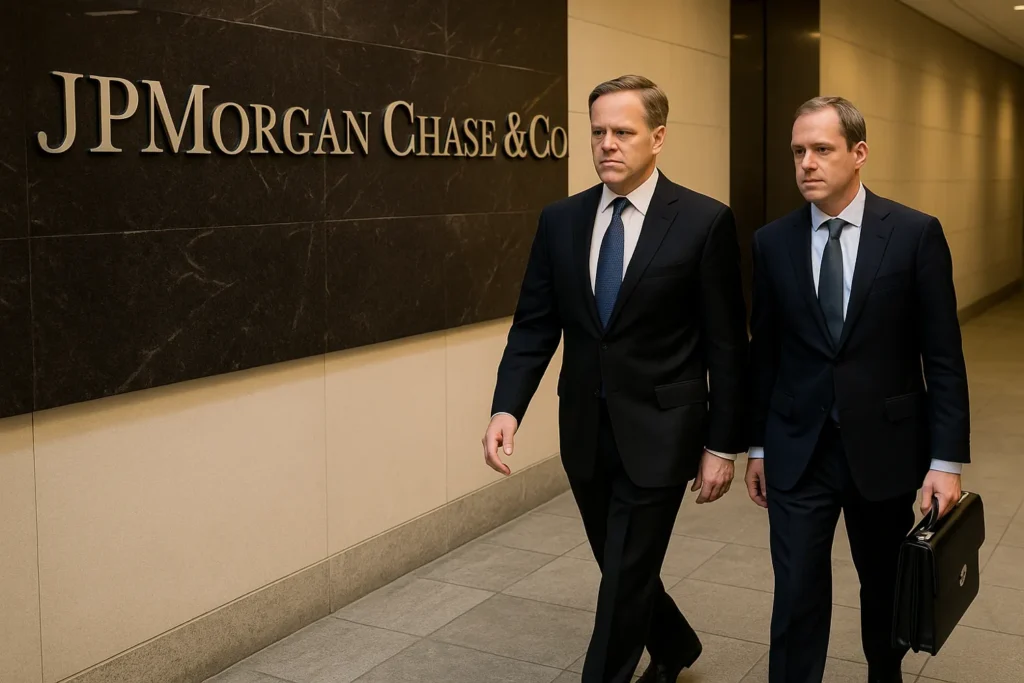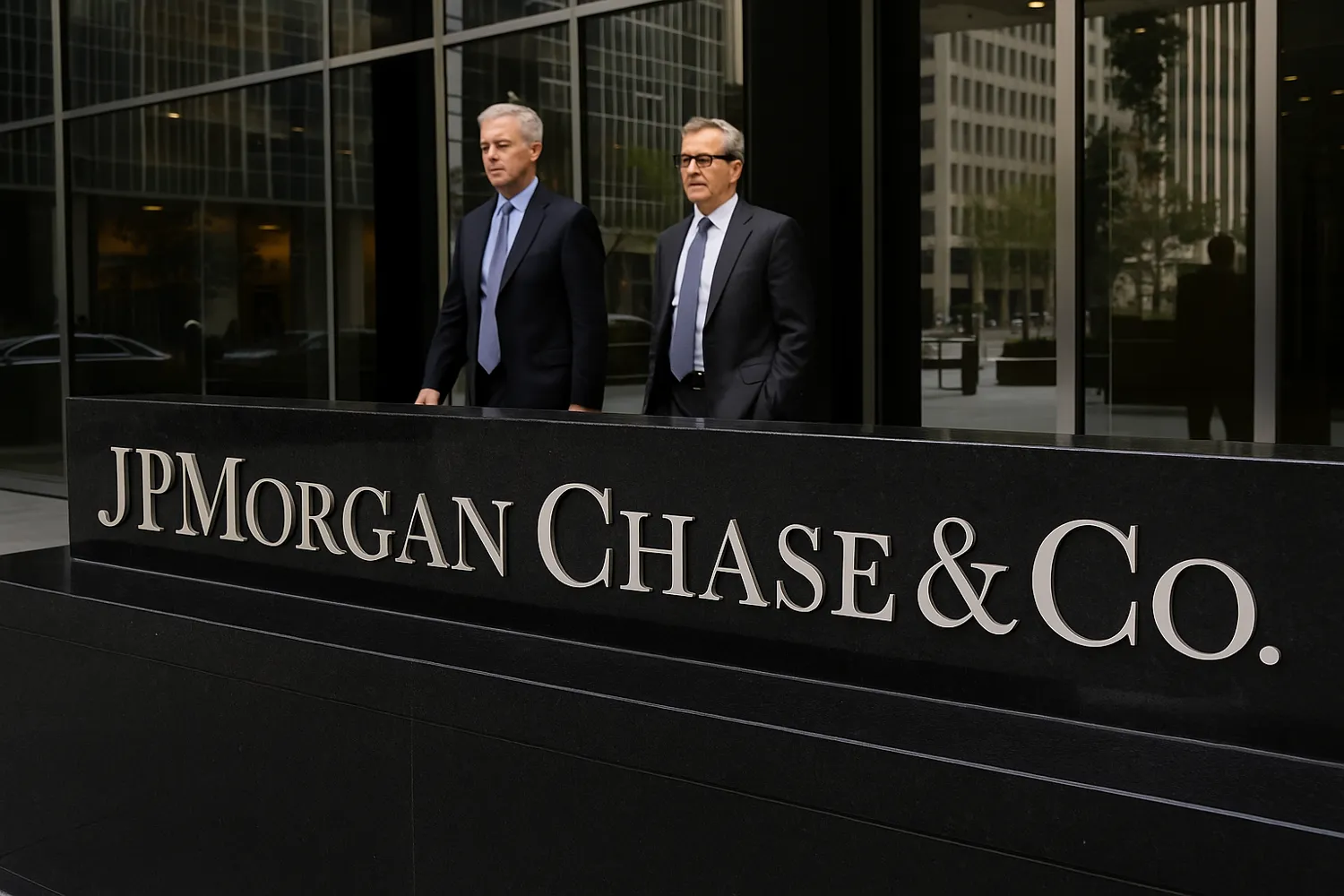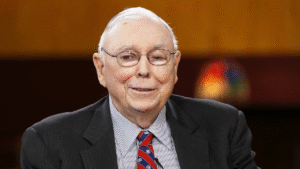When JPMorgan Chase bankers announce new hires, the financial press usually nods politely. Two senior bankers join the consumer and retail investment team, and headlines call it “routine expansion.” But nothing at JPMorgan is ever routine. Behind the carefully scripted PR lies a calculated strategy: to use the fragility of consumer and retail to extend Wall Street’s reach, consolidate influence, and position itself as the unrivaled broker of decline.
Context: the mainstream narrative
Reuters framed the move as “strengthening capabilities.” Other outlets echoed the same: JPMorgan Chase, the world’s largest investment bank, adds experience to capitalize on market opportunities. It sounds reassuring, predictable, even boring. The narrative implies stability: big banks attract big names to handle big deals.
But this sanitized version hides the truth. Consumer and retail are not booming. They are sectors under siege: record bankruptcies, slowing demand, retailers cutting costs, and consumers trapped between inflation and stagnant wages. In this environment, JPMorgan’s hires are not about growth — they are about control.
Oppositional Argument: reading between the lines
JPMorgan Chase bankers never hire talent casually. Senior bankers cost millions in pay packages, bonuses, and future deal guarantees. Such investments are made only with clear intent. Consumer and retail are weak. Margins are collapsing. Chains like Bed Bath & Beyond, J.Crew, and Party City have already folded in recent years. E-commerce titans squeeze smaller players while private equity strips assets.
By parachuting two senior bankers into this chaos, JPMorgan is not “enhancing capabilities.” It is preparing to dominate restructuring, distressed debt, and M&A when the sector unravels further. The mainstream says “opportunity.” The truth is predation.

Analytical Breakdown: timing, motives, consequences
Timing matters. U.S. retail bankruptcies jumped nearly 40% year-over-year, with consumer discretionary spending falling in three consecutive quarters. Credit card debt crossed $1.3 trillion, delinquency rates rising to levels unseen since 2009. These are not signals of opportunity — they are distress flares.
JPMorgan has a history of exploiting such moments. In 2008, it swallowed Bear Stearns and Washington Mutual during the financial collapse, expanding power while others drowned. In 2020, it captured clients in retail and travel as COVID ravaged those sectors. Now in 2025, history rhymes: consumer and retail are wobbling, and JPMorgan smells the blood in the water.
Hiring senior dealmakers means preparing pipelines: debt restructuring mandates, advisory roles in bankruptcies, and distressed M&A. Expect JPMorgan to stand at the center of the coming wave, advising both collapsing firms and the vultures picking over their remains. This is how dominance is cemented: by profiting from failure.
Human Perspective: the cost for Main Street
For ordinary people, the story reads differently. Retail bankruptcies mean mass layoffs, shuttered malls, and hollowed-out towns. When JPMorgan Chase bankers strategize over “opportunities,” they do not mean stability for workers, families, or small suppliers. They mean extracting value from collapse.
Take Toys “R” Us: its demise wiped out 30,000 jobs, crushed pension funds, and left malls vacant. Who profited? Private equity firms and banks. The same cycle looms again. For Main Street, JPMorgan’s hires are not hope — they are harbingers.
Counterarguments
Defenders insist: hiring senior bankers is standard. It’s just business. But standard for whom? For JPMorgan, “standard” has always meant using crises as leverage. Critics might argue the hires show faith in recovery. Yet the data tells another story: consumer sentiment is fragile, retail margins shrinking, and credit tightening. No bank doubles down on a healthy sector. It doubles down when others retreat, to monopolize what’s left.
Global context: power beyond U.S. borders
This strategy extends beyond America. JPMorgan has been aggressively expanding into Europe and Asia, particularly in distressed retail. In London, it has been advising on luxury mergers amid a downturn. In Asia, it has pushed into consumer tech consolidations. By strengthening its U.S. retail arm, the bank is building global leverage. Consumer and retail may look weak, but globally, they are gateways to influence over supply chains, labor markets, and cross-border trade.
Conclusion: Wall Street prepares to feast
JPMorgan Chase bankers’ new hires are not “ordinary.” They are a signal of intent. Wall Street prepares to feast while consumer and retail buckle under strain. The mainstream narrative — growth, opportunity, capabilities — is a smokescreen. What’s coming is consolidation, layoffs, and profit from pain.
The truth is blunt: JPMorgan strengthens in decline, not in growth. While Main Street suffers, Wall Street wins again. The cycle repeats, and two new bankers are simply the sharp end of the spear.
External Links
150 views





